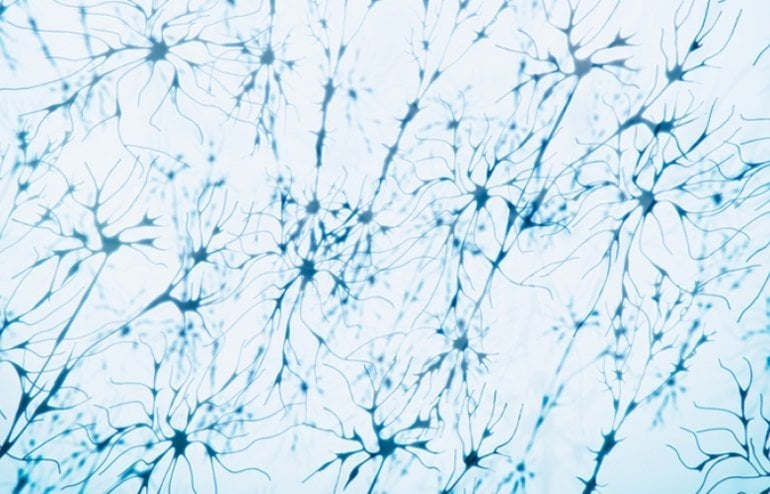Summary: Neurons can counteract degeneration and promote survival by adapting their metabolism.
Source: Karolinska Institute
A recent study in Science Advances by researchers at Karolinska Institutet and Max Planck Institute, shows that neurons can counteract degeneration and promote survival by adapting their metabolism. It challenges the long-standing view that neurons cannot adjust their metabolism and therefore irreversibly degenerate. These findings may contribute to developing therapeutic approaches for patients with mitochondrial diseases and other types of neurodegeneration, such as Parkinson’s Disease.
Mitochondria are the power plants of our cells and play an important role in providing energy for normal function of the tissues in our body. Nerve cells are particularly dependent on mitochondria for their activity. A growing body of evidence has linked mitochondrial dysfunction to some of the most devastating forms of neurodegeneration, such as Parkinson’s disease, different ataxias and several peripheral neuropathies.
However, despite the urge to find strategies to prevent or arrest neurodegeneration, our understanding of the precise events underlying neuronal death caused by mitochondrial dysfunction is very limited.
Neurons are generally considered as terminally differentiated cells with very limited or no capacity to adapt their energy metabolism to challenging conditions. For some neurological diseases there is ample evidence that mitochondrial dysfunction can be tolerated for lengthy periods of time. The researchers therefore asked the question whether degenerating neurons may activate a program of metabolic resilience.
“We devised an innovative approach to purify degenerating neurons from the mouse brain and to analyze the global protein content, the proteome, of these neurons. Unexpectedly, the proteomic data showed the existence of a precisely coordinated, neuron-specific metabolic program that becomes activated in response to mitochondrial dysfunction”, says Nils-Göran Larsson, corresponding author of the study and professor at the Department of Medical Biochemistry and Biophysics at Karolinska Institutet.
Metabolic rewiring makes neurons resistant to degeneration
In particular, the authors identified a form of metabolic rewiring (Krebs cycle anaplerosis) that makes neurons resistant to an otherwise very rapidly progressing degeneration. This type of metabolic adaptation was previously only thought to occur in peripheral tissues or supporting cells (glia cells) in the brain. The finding that neurons can induce anaplerosis could further demonstrate that it had a protective role. When anaplerosis was blocked, neurons died at a much faster pace and the disease became more severe.

The identification of certain forms of metabolic rewiring in dysfunctional neurons provide new mechanistic insights into the processes leading to neurodegeneration. Based on these new findings, the authors hope that it may be possible to develop therapeutic approaches to prolong neuronal survival and improve function in patients with mitochondrial diseases and other types of neurodegeneration.
The research has primarily been conducted at the Max Planck Institute in Germany. It has been funded by Deutsche Forschungsgemeinschaft, the Swiss National Science Foundation, the Swiss National Foundation, the Swedish Research Council, the Knut and Alice Wallenberg Foundation and the European Research Council.
About this neurology research article
Source:
Karolinska Institute
Contacts:
Leona Rohrbeck – Karolinska Institute
Image Source:
The image is credited to Karolinska Institute.
Original Research: Open access
“Neuronal metabolic rewiring promotes resilience to neurodegeneration caused by mitochondrial dysfunction” by Nils-Göran Larsson et al. Science Advances.
Abstract
Neuronal metabolic rewiring promotes resilience to neurodegeneration caused by mitochondrial dysfunction
Neurodegeneration in mitochondrial disorders is considered irreversible because of limited metabolic plasticity in neurons, yet the cell-autonomous implications of mitochondrial dysfunction for neuronal metabolism in vivo are poorly understood. Here, we profiled the cell-specific proteome of Purkinje neurons undergoing progressive OXPHOS deficiency caused by disrupted mitochondrial fusion dynamics. We found that mitochondrial dysfunction triggers a profound rewiring of the proteomic landscape, culminating in the sequential activation of precise metabolic programs preceding cell death. Unexpectedly, we identified a marked induction of pyruvate carboxylase (PCx) and other anaplerotic enzymes involved in replenishing tricarboxylic acid cycle intermediates. Suppression of PCx aggravated oxidative stress and neurodegeneration, showing that anaplerosis is protective in OXPHOS-deficient neurons. Restoration of mitochondrial fusion in end-stage degenerating neurons fully reversed these metabolic hallmarks, thereby preventing cell death. Our findings identify a previously unappreciated pathway conferring resilience to mitochondrial dysfunction and show that neurodegeneration can be reversed even at advanced disease stages.






